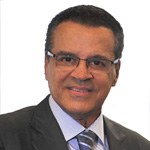Biografia/Biography
Presidente da Câmara dos Deputados eleito para o biênio 2013-2014, Henrique Eduardo Alves n asceu no Rio de Janeiro em 9 de dezembro de 1948. É o decano da Câmara dos Deputados, com 43 anos de vida parlamentar e 11 mandatos seguidos representando o Rio Grande do Norte, sempre pelo mesmo partido, o PMDB.
asceu no Rio de Janeiro em 9 de dezembro de 1948. É o decano da Câmara dos Deputados, com 43 anos de vida parlamentar e 11 mandatos seguidos representando o Rio Grande do Norte, sempre pelo mesmo partido, o PMDB.
Foi eleito pela primeira vez em 1970, depois de seu pai, o ex-governador do Rio Grande do Norte Aluizio Alves, ter sido cassado pela ditadura militar. Na Câmara dos Deputados, participou da oposição ao regime, do movimento das Diretas Já e da Assembleia Nacional Constituinte, que resultaram na redemocratização do País, nos anos 1980.
Entre 2007 e 2012, exerceu a liderança da bancada do PMDB na Câmara dos Deputados. Sua atuação foi decisiva na votação do novo Código Florestal. Por suas habilidades de negociador e articulador, ele é reconhecido como um dos parlamentares mais influentes do Congresso Nacional, segundo pesquisa do Departamento Intersindical de Assessoria Parlamentar (Diap).
Ao longo dos 11 mandatos, apresentou 672 proposições, entre projetos de lei, propostas de emendas à Constituição e outras. Foi relator de 57 matérias, dentre as quais se destacam o programa habitacional Minha Casa, Minha Vida e o novo regime de distribuição dos royalties do petróleo no pré-sal.
Biography